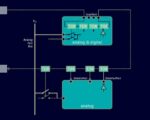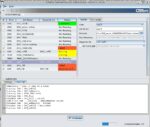You are currently viewing SemiWiki as a guest which gives you limited access to the site. To view blog comments and experience other SemiWiki features you must be a registered member. Registration is fast, simple, and absolutely free so please,
join our community today!
WP_Term Object
(
[term_id] => 159
[name] => Siemens EDA
[slug] => siemens-eda
[term_group] => 0
[term_taxonomy_id] => 159
[taxonomy] => category
[description] =>
[parent] => 157
[count] => 819
[filter] => raw
[cat_ID] => 159
[category_count] => 819
[category_description] =>
[cat_name] => Siemens EDA
[category_nicename] => siemens-eda
[category_parent] => 157
[is_post] =>
)

WP_Term Object
(
[term_id] => 159
[name] => Siemens EDA
[slug] => siemens-eda
[term_group] => 0
[term_taxonomy_id] => 159
[taxonomy] => category
[description] =>
[parent] => 157
[count] => 819
[filter] => raw
[cat_ID] => 159
[category_count] => 819
[category_description] =>
[cat_name] => Siemens EDA
[category_nicename] => siemens-eda
[category_parent] => 157
[is_post] =>
)
By Omar Elabd
As semiconductor designs move below 7 nm, parasitic effects—resistance, capacitance and inductance—become major threats to IC performance and reliability, often hiding where netlist reviews cannot reach. Design teams need advanced visualization tools like heat maps, layer-based analysis and direct layout… Read More
By Mark Tawfik
Overview: Protecting ICs from costly ESD and latch-up failures
Electrostatic discharge (ESD) events cost the semiconductor industry an estimated $8 billion annually in lost productivity, warranty claims and product failures [1].
Ensuring the robust protection of integrated circuits (ICs) against various… Read More
Digital design engineers have used DFT automation technologies like scan and ATPG for decades now, however, analog blocks embedded within SoCs have historically required that a test engineer write tests that require specialized expertise and that can take man-months to debug. Siemens has a long history in the DFT field, SPICE… Read More
The concept of built-in self-test for electronics has been around for a while. An article in Electronic Design from 1996 declared that, “built-in self-test (BIST) is nothing new.” The memory subsystem is a particularly large and complex part of any semiconductor design, and it’s one that can be particularly vexing to test. Design… Read More
By Ujjwal Negi – Siemens EDA
Multi-die architectures are redefining the limits of chip performance and scalability through the integration of multiple dies into a single package to deliver unprecedented computing power, flexibility, and efficiency. At the heart of this transformation is the Universal Chiplet Interconnect… Read More
By Marko Suominen and Slava Zhuchenya of Siemens Digital Industries Software.
It’s often said that an orchestra without a conductor is just a collection of talented individuals making noise. The conductor’s role is to transform that potential cacophony into a unified, beautiful symphony. The same concept holds… Read More
Wednesday was the last day at #62DAC for me and I attended an Exhibitor Session entitled, Engineering the Semiconductor Digital Thread, which featured Vishal Moondhra, VP Solutions Engineering of Perforce IPLM and Michael Munsey, VP Semiconductor Industry at Siemens Digital Industries. Instead of just talking from slides,… Read More
Todd Burkholder and Andras Vass-Varnai, Siemens EDA
As semiconductor devices become smaller, more powerful and more densely integrated, thermal management has shifted from an afterthought to a central challenge in modern IC design. In contemporary 3D IC architectures—where multiple chiplets are stacked and closely arrayed—power… Read More
Modern EVs are prime examples of software-defined systems, so I attended a #62DAC panel session hosted by Siemens to learn more from experts at Collins Aerospace, Arm, AMD and Siemens. Here’s the list of panelists that span several domains, and what follows is my paraphrase of the discussion topics.
Panel Discussion
Q: How does… Read More
AI was everywhere at DAC. Presentations, panel discussions, research papers and poster sessions all had a strong dose of AI. At the DAC Pavillion on Monday two heavy weights in the industry, Siemens and NVIDIA took the stage to discuss AI for design, both present and future. What made this event stand out for me was the substantial… Read More


![[white paper] Parasitic Analysis Figures](https://semiwiki.com/wp-content/uploads/2025/10/Fig1-net-level-visualization-150x127.jpg)







